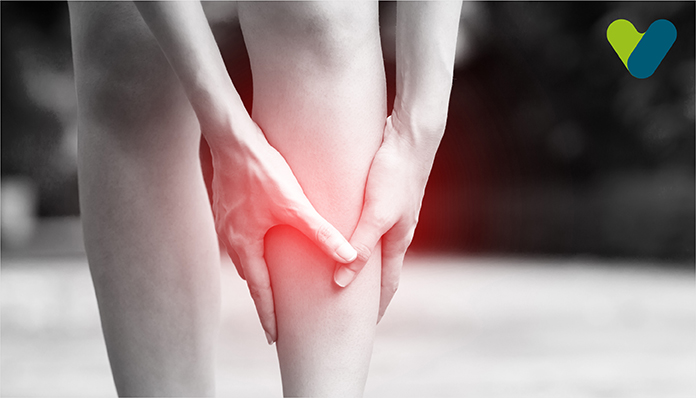The Achilles tendon is the largest tendon in the human body that helps connect the calf muscles to the ankle and heel area. It plays a very important role in daily functions, especially walking, running, jumping, etc.
The largest human tendon has a great capacity to tolerate stress from various strains on the leg, injuries, and a lot more. However, it is still a highly vulnerable area that can suffer great consequences from any tear or Achilles tendon rupture that incapacitates the tendon’s special functionalities.
Your feet carry the weight of your entire body, therefore, any tear in the Achilles tendon is a serious cause for concern. Despite its ability to sustain varying degrees of strain, it is important to take good care of the Achilles tendon. If you experience any Achilles tendon pain, consult with a doctor at the earliest and look into options for Achilles tendon treatment before the situation worsens.
What Are The Causes Of Achilles Tendon Pain?
Achilles tendon pain is one of the most common causes of concern among people who conduct rigorous activities. People who are more involved in physically straining events such as dancing, running, and playing strenuous games like volleyball, basketball, baseball, soccer, football, softball, tennis, and even gymnastics are more susceptible to injuries in the Achilles tendon.An Achilles tendon rupture is a possibility too if you perform sudden movements of speeding up, spinning, leaping, or any sudden movement that causes a strain in your heel. When you perform abrupt actions, it puts a lot of pressure on the Achilles tendon that it cannot manipulate. Thus, it leads to small or large injuries based on the magnitude of your momentum.
Most often, Achilles tendon pain is a result of Achilles tendon ruptures, which is a serious problem that requires immediate attention and care. There are also several cases where the problem is minor and causes slight pain. In any case, you need to seek Achilles tendon treatment right away if you experience any pain since this is one of the most important tendons in the human body.
Another cause for Achilles tendon pain is partaking in stressful activities that have a high impact on the body. This means you may undergo Achilles tendon rupture if you jump too quickly or from a height or even if you fall in a way that strains the tendon connecting your heel and calf.
Other causes for the risk of damaging the Achilles tendon are as follows:
- If the tendons and muscles in your legs are too tight.
- If you suffer from bone spurs.
- If you embark upon a new method for exercising.
- If you extend your regular intervals of exercises or perform extensively stressful moves.
- If you work out on surfaces that are uneven.
- If you wear high heels that cause stress and strain on the tendon.
- If you suffer from ‘flat feet’ syndrome, commonly associated with fallen arches. If you have this syndrome then your feet fall flat on the ground when you walk or run. This causes excessive strain on the tendons and muscles, thus increasing the risks of an Achilles tendon rupture.
- If you suffer from chronic illnesses such as diabetes, arthritis, rheumatoid, gout, or lupus.
- If you intake medicines such as antibiotics like fluoroquinolones and glucocorticoids.
How To Diagnose An Achilles Tendon Rupture?
Injuries to the Achilles tendon have similar symptoms as a sprain, therefore, to thoroughly diagnose and determine the cause of the Achilles tendon pain, your doctor will begin with a physical examination.Usually, the diagnosis for Achilles tendon treatment starts with small activities like a walk or a run. It helps the doctor observe any particular problems or habits that may have caused the Achilles tendon pain.
Following that, the doctor will perform a calf-squeeze test if necessary. You’ll need to kneel on a surface or lay on your stomach and the doctor squeezes your calf muscles. If there is a tear or Achilles tendon rupture, then your foot won’t move as an impulse due to the broken connection between the foot ad the calf.
Based on the degree of pain, doctors may also perform imaging tests to determine the amount of tendon damage and devise a suitable course of treatment. They may even want to check your level of motion for an indicator of how far you can move your ankle around.
Achilles Tendon Treatment
As we have mentioned before, the Achilles tendon is able to sustain huge amounts of strain and several cases of minor tears or damages in the Achilles tendon heal on their own. You can use the following methods to speed up the healing process:- Give your legs a rest
- Apply Ice Packs
- Compress the leg with an elastic bandage to limit the swelling
- Rest the leg on a raised platform like a pillow when you sit or sleep
- Opt for NSAID painkillers to dull the pain
- Exercise to stretch and strengthen your muscles and tendons
- Opt for a heel lift in your shoe to prevent further stretching in the Achilles tendon.
Up to 80 to 90 percent of Achilles tendon surgeries are successful and they are an excellent option to fix an Achilles tendon rupture, especially in younger and active people. In most cases though, the Achilles tendon heals by itself with proper care.


